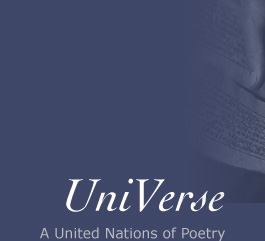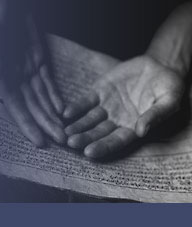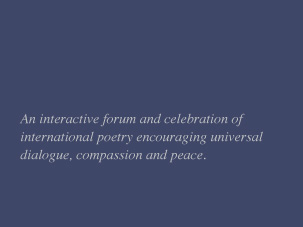| |
 |
 |
 |
Farhad Shakely I was born in 1951 in the Garmiyan region, in the province of Kirkuk in Southern Kurdistan, as the second child to a middle-class family. I spent the years of my childhood in our village Shakel; the number of its inhabitants never ascended 150 persons.
The first language I was taught at home by my father was Kurdish. When I began going to school later I was taught in Arabic, which I didn’t understood at that age.
In the summer of 1963, when the Iraqi regime declared war against the Kurdish
people, we were obliged to evacuate our village and move to safer places, since
the Iraqi planes were attacking our region almost every day. My father was at
that time an active member in the Kurdish liberation movement. I missed that
study year. The regime imposed an economic and administrative embargo on Kurdistan.
A year later, I resumed my study, but this time in another village, since the
school in our village was shut down. (more...)
|
Kurdish
version
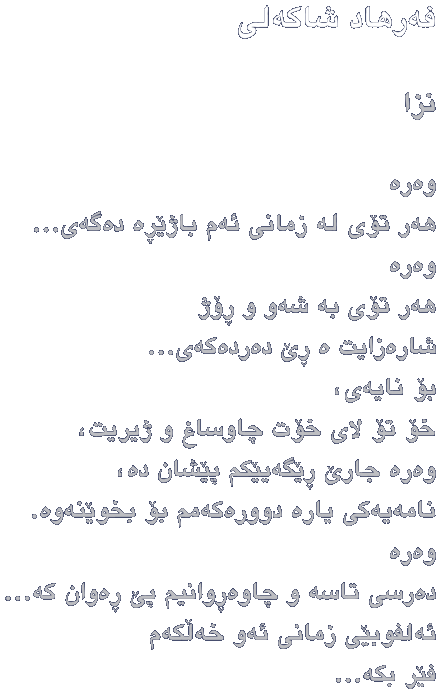
|
English
version
Supplication
Come!
Only you understand the tongue of this city---
Come!
Only you are the expert,
You know the paths in dark and daylight.
Why don’t you come?
You are the wise and the guide.
Come, even for once
Show me a way,
Read me a letter from my remote love—
Come!
Explain the lessons of agony and waiting,
Teach me the alphabet of these people.
Translated by Abdurrahman Wahab
This translation was first published in:
the watermark, Vol. 15 (fall 2006) |
| A State of Mind that Defies Description or Definition |
Kurdish | English |
 |
|
 |
|
Kurdish
version

|
English
version
A State of Mind that Defies Description or Definition
1.
Regard, o sorrowful traveller, the blue of the sea.
The waves of wounds beat together
and the beaches of pain lie deserted
except for silently weeping faces
and you listen to the whispering of the distant beloved.
An appeal comes to you from your fettered native land.
Love flares up and raises a cry
from the child crouching in your depth
to revolt against tyrannic laws
and a drifting towards the square of time
bearing numerous examples of unconsciousness.
2.
Disappointed you return from your insane dance
to become one with the noise of the street,
not caring how thin the smiles are
not caring how the lights fade away.
You are assulted—O traveller with the green desires—
by states of mind that defy description or definition.
Others call them ruin, delirium, dismay,
confusion, failure, fiasco,
but you scan the street attentively,
watch the lighted show-windows.
Perhaps you'll hit upon that song
you're longing to hear
when you are assaulted by states of mind
that defy description or definition.
Have you seen the city's other face?
Have you met its terrifying rites?
Armed to the teeth with penetrating looks,
you surround the shining frames, you pierce them
in order to break through doors in darkness.
But you shrink back:
the heart of the city is a wall of steel.
3.
On the cluttered sidewalks
books, magazines and the daily newspaper are spread out.
You search, you leaf in vain
for the face missing in the wedding
of the time of the executioner, has been lost.
4.
O sorrowful traveller,
the wound is a book without margins.
5.
In "The Golden Finger"
music mixes with drunken sighs.
The door of desire slams shut,
closes, opens, closes.
Outside the deep red river flows,
unfrightened by the spear, unguarded by the rifle,
between the river and the wine-house a bridge
built and still standing.
6.
This debauchery
cost the destruction of a country on the map of time,
thousands killed,
millions of tears and sighs
and other small tragedies
not recorded in the official statistics.
7.
You ask for him, that unknown prophet,
at all the bookstores.
You search for him.
You spell his name in the classical language,
Ghassan Kanafani,
but you always turn away disappointed
for this is an age
when people forget the names of prophets.
8.
This native land, this love made me an heir to wounds
for which I have no name.
The first is a departure in search of a face
which keeps me company.
Today I read the name, Kurdistan,
in the table of contents
but I could not find it in the book.
9.
Astounding and empty—such are the cities of the world.
Nowhere in them do you meet
the musician who can play for you
a harmonious song that fits the dance you know so well.
10.
Alas, O immortal lady, alas!
this never-ceasing whistle
from the pipe of history holds me captive
inside a wall of terrible hardship.
May I ask a humble question?
How long?
|
 |
 |
Kurdish
version
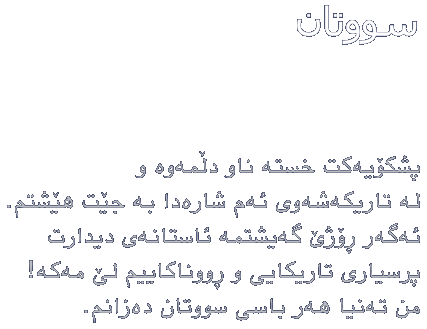
|
English
version
Burning
You put an ember in my heart
and abandoned me in the darkness of this city.
If, one day, I arrive at the threshold of your meeting,
don’t ask me about darkness or light,
what I know is only the mention (story) of burning. |
| Bio |
|
 |
|
 |
|
As a child I was too much interested in reading books. It was impossible to get access to children’s books in Kurdish. Therefore I red books in Arabic, which I commanded soon. My father had a great number of books and magazines, mainly in Kurdish. Although these were political and literary works, I became interested in reading them. At an age of 12 or 13, I read the works of many classic Kurdish poets, without grasping anything. Among the poets who were interesting for me were Goran (1904-1962) and Kamaran (1927-1983), the language of whom was easier and more tangible and the poetry of whom was closer to my heart and soul.
In an early age I felt the necessity of expressing myself in a simplified form of poetry. I used to show my “poems” to my father or his friends. Sometimes I was encouraged to continue, but it happened also that in times I was confronted with ridicule.
In the mid-1960s, a weekly was published in Baghdad in Arabic, with one single page in Kurdish in every issue. One day I decided to send them one of my poems. I had forgotten this when months later a friend of me told me that he has seen my poem published in the paper. I never saw that issue, though it contained my first ever-published poem. In 1968 and 1969 I began to publish my poems and articles in papers and magazines.
The years 1968-69 were quite interesting for my literary development. I became acquainted with modern Arabic poetry and, through that language, with European poetry. It seems that Surrealism and Dadaism have been very influential on my conception of poetry and literature. Almost in the same period I was involved in politics. Within a short time I became the head of Kurdistan Students’ Union in my native town Kifri.
In 1970 an agreement of peace was signed between the Kurdish liberation movement and the Iraqi regime that lasted in four years. This was an important period for the development of Kurdish culture. In the autumn of 1971, I was admitted at the University of Baghdad, Department of Kurdish language and literature. At that time, Baghdad was an important centre for Kurdish culture, since a number of papers and magazines were published, and cultural Kurdish associations were founded, there. In 1973, I got a job as journalist at a Kurdish newspaper. At the end of that year our paper, Birayati (Brotherhood), changed its circulation from a weekly to a daily. That was the first time in the history of Kurdistan that a daily paper was being published in Kurdish. I published in March 1973 my first poetry book: Project of a Secret Coup, which was received warmly by the critics and readers. Some ten reviews were written about it, which was a great event at that time, especially for a young poet.
In the summer of 1971, while attending the congress of the Kurdish Writers’ Union, held in Hawler, together with my friend, poet Latif Halmat (born in 1947), we published a poetical manifestation in which we expressed our opinion concerning modern poetry and the modernisation of Kurdish poetry. The Manifestation included of course many polemical points of view and controversial judgements.
In March 1974 the war between the Iraqi regime and the Kurdish liberation movement resumed. I joined the liberation movement with almost all Kurdish writers, journalists and intellectuals. That year, from March 1974 to March 1975, was one of the happiest years in my life. But unfortunately it ended in a tragedy. In March 1975 the Iraqi regime, with mediation of the US secretary of state Henry Kessinger, signed an agreement with Iran, according to which Iran closed its borders to thousands of Kurdish families. Iran also agreed to collaborate with Iraq to persecute and smash the Kurdish movement. The movement suddenly collapsed. I returned to my studies at the university, but decided to continue my political struggle clandestinely. In the summer of 1975 our small leftist organisation became known by the Iraqi secret police and many of our members were arrested, a number of whom were executed later. I was obliged to begin a period of underground activity that lasted more than one month. It was a difficult period, since I lived with various families of my political comrades or in hotels with false papers and different names. But even that didn’t help. With two of my comrades, I left Iraq and crossed the borders to Syria by walking. In Syria, I joined the newly rebuilt Kurdish liberation movement once again. I participated actively in the movement for a year and a half. In this time, I began to feel a sort of unease, a sort of contradiction, between my life as a poet and my practical participation in a political party. This feeling was growing day after day, until it seemed impossible for me to continue experiencing that contradiction. I took the decision to abandon politics for good.
In summer 1977, I spent four months in Beirut, Lebanon, living in the conditions of the civil war, waiting for my friends to provide me with a false passport to leave with them to Europe. At last, in September 1977, I left for Europe. The first European City I saw was Rome. I had to change planes in Rome and took the opportunity of the six hours’ time I had at my disposal to go to Rome. After four hours in Rome I went back to the airport to continue my journey to Hamburg, then West Germany. I stayed illegally in Germany for ten months. During that time, I visited Amsterdam, London, Paris and Stockholm. All these trips I made with a false passport. On my third visit to Sweden, in August 1978, I became ill in the second day of my arrival and was taken to the hospital. I immediately underwent an operation to my intestines. That was the main reason for my staying in Sweden.
After I joined the Kurdish liberation movement again in 1975-1976, all the members of my family, including my old parents, were arrested and put in prison for three years. In the years 1975-1991, I couldn’t meet anybody of my family, except a brother who also lives in Sweden. The first time I returned to my region was in the year 2000. My village Shakel was totally demolished and not a single trace of it could be seen.
At the beginning of my life in Sweden, I studied the Swedish language, and English. Thereupon I began to study Iranian languages at Uppsala University. Then I made research in Kurdish literature. Doing research on Kurdish literary history was a means that made me familiar with Sufism. This was the illuminated gate of the city of light and love. Sufism became since then a great interest for me, the colours and the fragrance of which has mixed with my poetry and my whole life.
Up to date, I have published some 20 books. The titles of a few of them are as follows:
- Project of a secret coup (poetry), 1973
- A river of light flowing from the red sun (poetry), 1977
- Acclivity (poetry), 1981
- String (poetry), 1985
- I engrave your picture on the walls of my jail (poetry), 1994
- All my secrets are revealed, all your revelation is concealed (poetry) 2001
- The smell of darkness (short stories) 1977
- Kurdish nationalism in Mam u Zin of Ahmad-i Khani (literary history), 1992
(translated into Swedish, Turkish and Arabic).
A great number of my poems are translated into Persian, Arabic, Norwegian, Swedish, English, French, Italian, Icelandic and Danish. |
 |
 |
|
 |
|
